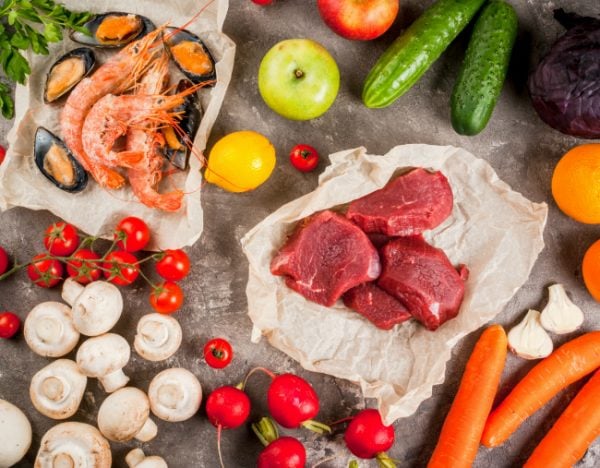By Linda McSweeny, University of Melbourne.
Counter to the stereotypical assumptions of kale-worshipping gym-junkies, many Australian Paleo dieters are sufferers of lingering, and at times chronic, disease.
In her new book, Illness, Identity, and Taboo among Australian Paleo Dieters, Dr Catie Gressier, a University of Melbourne anthropologist, recounts stories of people struggling with chronic illness and obesity who have embraced the Paleo diet, and in turn, connected with each other.
Paleo, also known as the caveman diet, involves eating meat, fish, eggs, nuts, vegetables and fruit, to emulate the diets of our pre-agricultural ancestors. It was the most frequently Googled diet in 2013 and 2014.
Its premise is that our bodies have not significantly evolved since the Palaeolithic period, resulting in a mismatch between our hunter-gatherer genetic inheritance and contemporary diets and lifestyles.
The Paleo diet has attracted criticism in the media and public health circles for its restrictive regime and association with controversial alternative health practices, yet its popularity continues unabated.
Living paleo.
Dr Gressier spent two years conducting research with Paleo dieters in Melbourne’s inner north, Sydney’s Northern Beaches and online, to better understand who is taking up the diet, and why it has struck such a chord at this moment in time.
Using an ethnographic approach, Dr Gressier hung out, cooked, ate and talked at length with Paleo dieters. She attended numerous events and workshops, engaged with hundreds of Paleo dieters on social media, spent a month eating strictly Paleo, and conducted more than forty interviews with dieters, doctors, nutritionists and alternative health practitioners.


Top Comments
True. This has been my experience as well.
Many of us who follow the Paleo lifestyle do so because we are sick and tired of being sick and tired, and have tried everything else.
I slowly transitioned to Paleo over a couple of years and lost over 50kg but there were a lot of foods on the diet that my body couldn't tolerate. Earlier this year I transitioned to the Autoimmune Protocol and not only has my clarity of mind has returned, I have been able to pin point what foods I am sensitive to.
Thank you for publishing an article sharing this point of view.
I've had weight issues for most of my life and been on heaps of diets - not an unusual story.
Basically, when I'm healthy,pain & illness-free and therefore active - my weight comes down.
When I'm dealing with chronic illness & pain - my weight goes up.
Back in the Eighties there was a book called The Health Revolution and it's ideas were basically Paleo with warnings about grains too, but I took notice of it's obvious "wisdom".
During that time I became a Vegetarian because I was concerned about the cruelty to animals in the food industries - I still am 31yrs later.
My observation of friends following the Paleo Diet is that they seem to eat too much meat, too often.
I prehistoric times of course they ate meat - but not every day. Only when they had a successful hunt................and that meat was a pure product unadulterated with growth hormones, antibiotics, chemicals & modern pollution.
I have an unpopular theory that eventually ( all going well ) we end up with the body we were destined to have and if that's too plump to accommodate modern fashion - too bad.
Health & pain-free living should be the focus.
I reckon the happiness that comes with being satisfied with that is what's most important.